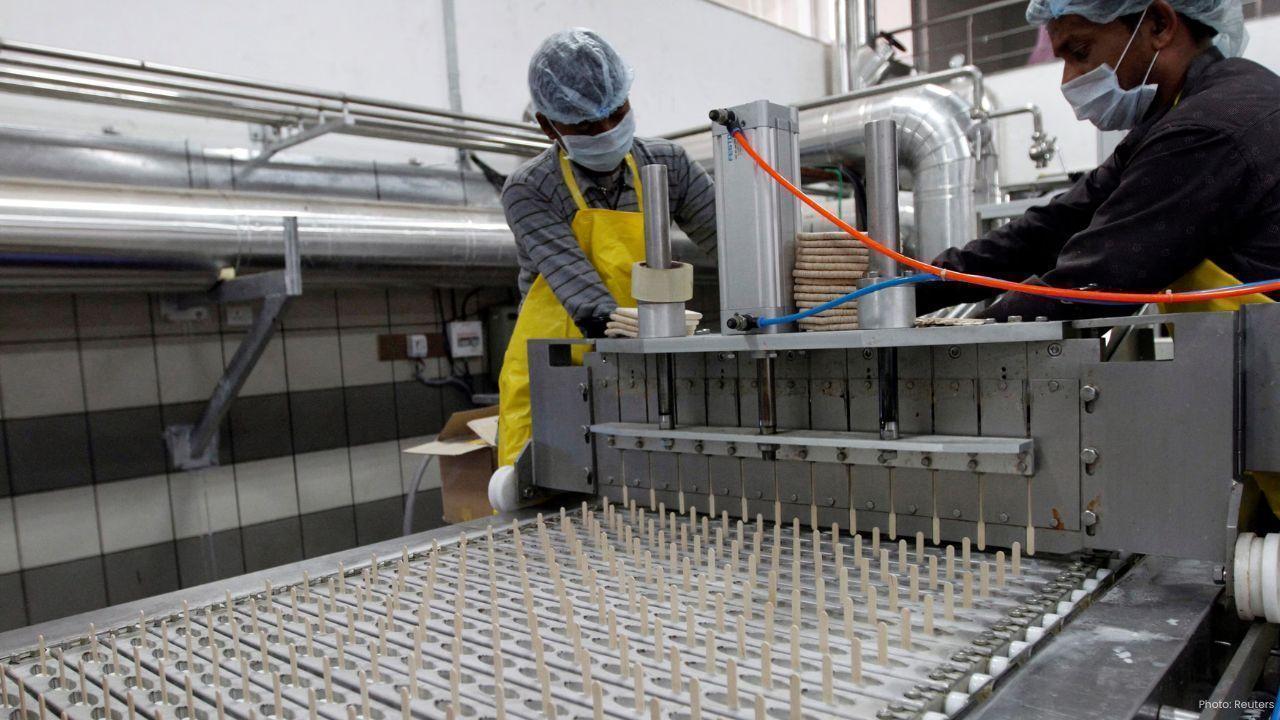
Post by : Meena Rani
India’s cold chain industry is going through a major transformation. Traditionally focused on the pharmaceutical sector, particularly vaccines, the sector is now expanding to meet the growing demand for frozen foods, dairy products, fresh fruits and vegetables, and quick commerce delivery services. This change is driven by urbanization, changing consumer habits, and advancements in technology, making it an essential part of India’s modern logistics system.
Rapid Growth in the Cold Chain Market
India’s cold chain market is growing fast. Estimates show that in 2024, the market was worth about USD 28.5 billion, and it is expected to reach around USD 74.5 billion by 2033. This growth represents a compound annual growth rate (CAGR) of 10.9%. Within the cold chain, logistics services are also expanding rapidly, from a value of USD 10.5 billion in 2024 to an expected USD 31.7 billion by 2033. This indicates that more businesses and consumers are relying on temperature-controlled storage and transportation for their products.
Factors Driving Cold Chain Expansion
Several key factors are fueling this rapid transformation in India’s cold chain industry:
Urbanization and Changing Lifestyles
India is seeing rapid urbanization, which is changing the way people live and shop. Urban consumers prefer ready-to-eat meals, processed foods, frozen goods, and fresh products delivered quickly. These changes have created a strong demand for cold chain logistics that can preserve the quality and safety of perishable items.
Technological Advancements
Technology is helping the cold chain industry become more efficient and reliable. Modern tools like Internet of Things (IoT) devices, real-time temperature monitoring systems, automated warehouses, and advanced refrigeration methods have made it easier to maintain the quality of products throughout the supply chain. These technologies also improve transparency, so businesses can track shipments and ensure products reach customers in perfect condition.
Government Support
The Indian government recognizes the importance of cold chain infrastructure. Various initiatives, such as subsidies for building cold storage units, promoting renewable energy use in cold logistics, and encouraging private sector participation, are helping the sector grow. These efforts aim to improve food security, reduce waste, and strengthen the overall supply chain.
Sector-wise Impact
Frozen Foods
The frozen foods market in India is expanding quickly. Busy lifestyles, higher incomes, and a wider variety of frozen options are driving consumer demand. Companies are investing in advanced cold storage facilities and refrigerated transportation to ensure these products stay fresh from the factory to the customer’s home.
Dairy Products
Dairy products are highly perishable, and their quality depends on proper temperature control. With rising demand for milk, cheese, yogurt, and other dairy items, specialized cold chain solutions are essential to maintain freshness, taste, and safety.
Fresh Fruits and Vegetables
India is a major producer of fruits and vegetables. However, a large amount of produce is lost after harvest due to inadequate storage and transportation facilities. Cold chain investments, including refrigerated storage and transport, are critical to reducing these losses. Better infrastructure ensures that fresh fruits and vegetables reach consumers without losing quality.
Quick Commerce (Q-Commerce)
Quick commerce, or Q-commerce, is rapidly changing the way people shop for perishable items. Consumers now expect fast delivery of groceries and other temperature-sensitive products. This has led to the development of decentralized cold storage solutions and improved last-mile delivery systems that can reach customers quickly while keeping products fresh.
Challenges in the Cold Chain Sector
Despite its growth potential, the cold chain industry in India faces several challenges:
Infrastructure Gaps: Many rural areas still lack cold storage facilities, leading to high post-harvest losses and wasted produce.
Skilled Workforce Shortage: Operating modern cold chain technologies requires trained professionals. There is a need for training programs to build a skilled workforce.
Investment Needs: Large-scale investments are required to upgrade old infrastructure and build new storage and logistics systems to meet rising demand.
Opportunities for the Future
The opportunities in India’s cold chain sector are enormous. With continued investment in modern infrastructure, advanced technology, and skilled human resources, India can become a global leader in cold logistics. Improved cold chain systems can reduce food wastage, improve the quality of perishable products, and ensure faster delivery to consumers, supporting both economic growth and public health.
India’s cold chain industry is evolving beyond its original focus on vaccines. The expanding demand from frozen foods, dairy, fresh produce, and Q-commerce is reshaping the sector. Addressing infrastructure gaps, investing in modern technology, and training skilled professionals will be key to unlocking the full potential of this sector. With coordinated efforts from both the government and private companies, India can build a resilient and efficient cold chain network that meets the growing needs of its economy and population.
India cold chain, frozen foods, dairy products, fresh produce, quick commerce










Advances in Aerospace Technology and Commercial Aviation Recovery
Insights into breakthrough aerospace technologies and commercial aviation’s recovery amid 2025 chall

Defense Modernization and Strategic Spending Trends
Explore key trends in global defense modernization and strategic military spending shaping 2025 secu

Tens of Thousands Protest in Serbia on Anniversary of Deadly Roof Collapse
Tens of thousands in Novi Sad mark a year since a deadly station roof collapse that killed 16, prote

Canada PM Carney Apologizes to Trump Over Controversial Reagan Anti-Tariff Ad
Canadian PM Mark Carney apologized to President Trump over an Ontario anti-tariff ad quoting Reagan,

The ad that stirred a hornets nest, and made Canadian PM Carney say sorry to Trump
Canadian PM Mark Carney apologizes to US President Trump after a tariff-related ad causes diplomatic

Bengaluru-Mumbai Superfast Train Approved After 30-Year Wait
Railways approves new superfast train connecting Bengaluru and Mumbai, ending a 30-year demand, easi